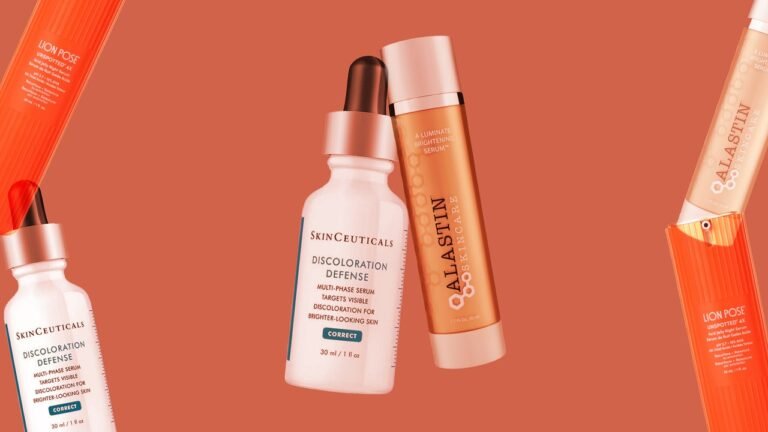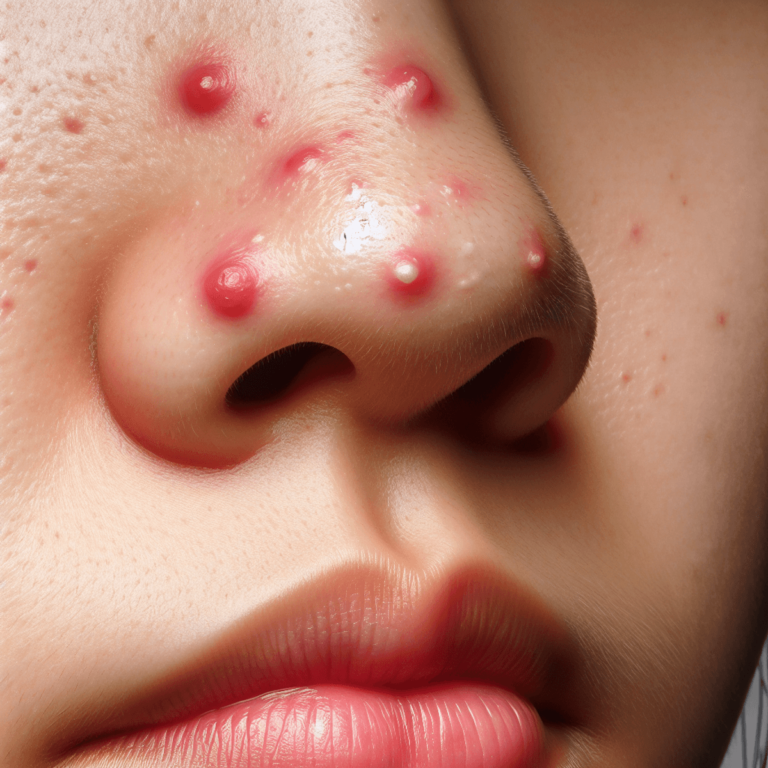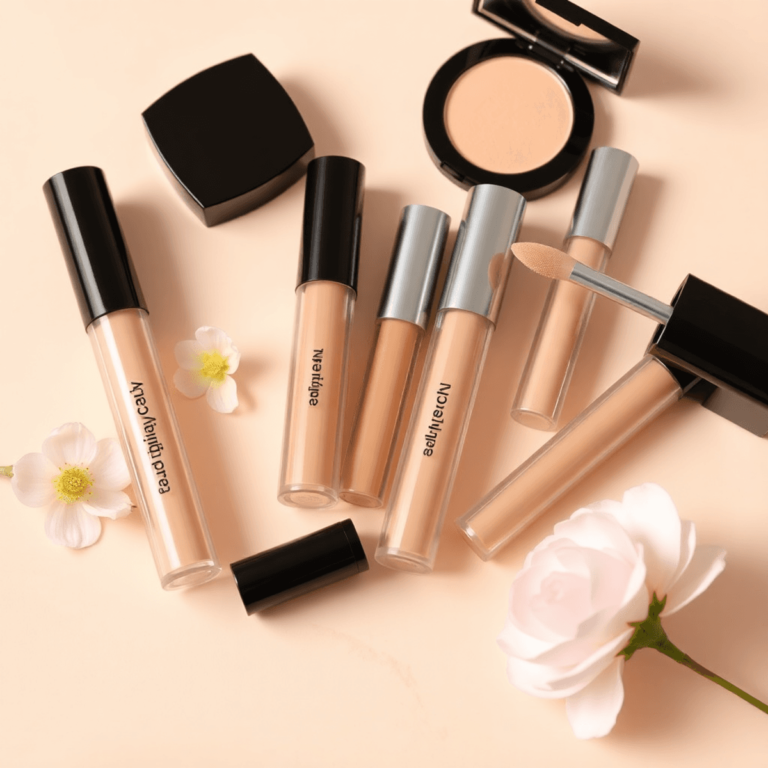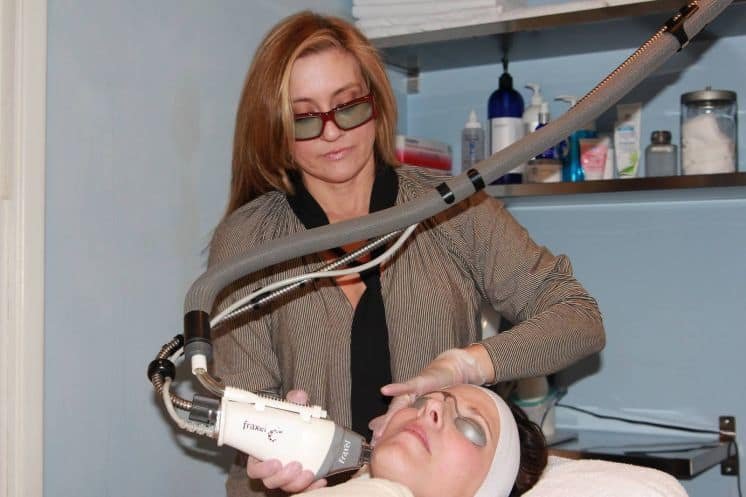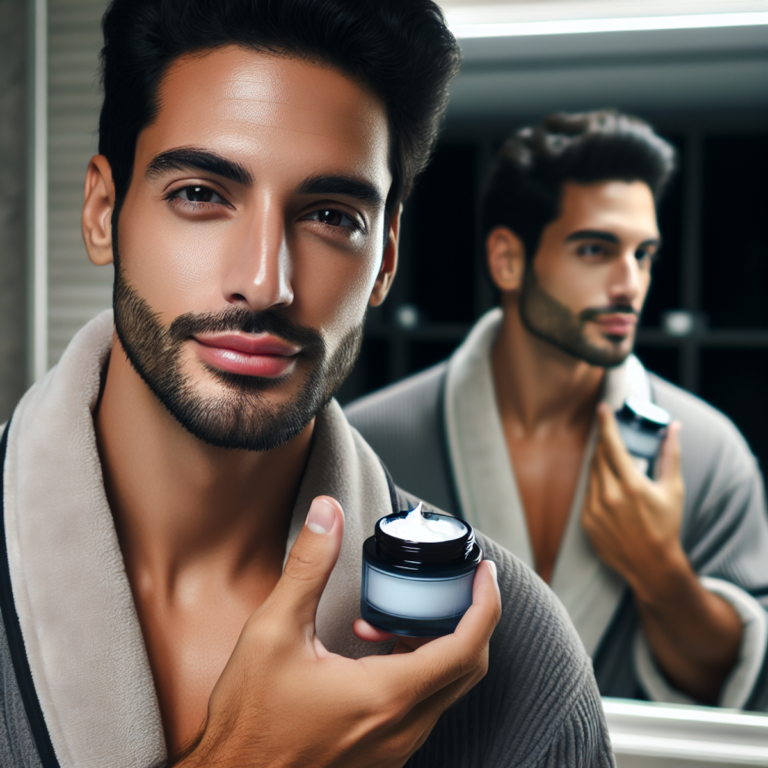How to Get Rid of Acne

Introduction
Acne is a common skin condition that affects many people, especially teenagers and young adults. It happens when pores get blocked, causing pimples, blackheads, and cysts to form. Acne doesn’t just impact how we look; it can also lower self-esteem and affect mental health.
To manage acne effectively, it’s important to take a comprehensive approach:
- Understanding the underlying causes such as hormonal changes, excess oil production, bacteria, and inflammation.
- Exploring various treatment options, ranging from topical treatments and oral medications to natural remedies.
- Making lifestyle modifications that support long-term skin health.
By combining these strategies, you can effectively tackle acne and achieve clearer skin.
Understanding Acne: Causes and Types
How Acne Forms
Acne starts when hair follicles get blocked with oil, dead skin cells, and other debris. This blockage creates a perfect environment for bacteria to grow, leading to inflammation and the development of different types of acne.
Several factors contribute to this process:
- Hormonal Changes: During puberty or menstruation, hormonal fluctuations can increase oil production in the skin, making it more prone to clogging.
- Bacteria: The presence of Propionibacterium acnes (P. acnes) bacteria on the skin can worsen inflammation and lead to more severe acne lesions.
Types of Acne
Understanding the different types of acne is crucial for effective treatment. Here’s an overview:
- Pimples (Papules and Pustules)Papules: Small, red, tender bumps without a visible center.
- Pustules: Similar to papules but contain pus at their tips.
- BlackheadsOpen comedones that appear as small black or dark-colored spots due to the oxidation of trapped oil and skin cells.
- WhiteheadsClosed comedones that remain under the surface of the skin, appearing as small flesh-colored bumps.
- CystsLarge, painful lumps beneath the surface of the skin filled with pus. Cysts can cause significant scarring.
- NodulesHard, painful lumps deep within the skin that do not contain pus but are inflamed and can be long-lasting.
Dealing with these various types requires a tailored approach. For instance:
- Learning how to get rid of pimples involves both topical treatments like benzoyl peroxide and proper skincare routines.
- Understanding how to remove pimples overnight might include using spot treatments such as salicylic acid or applying ice to reduce swelling.
For those wondering how do you get rid of pimples on face areas prone to breakouts, maintaining a consistent cleansing routine is key. Knowing how to remove pimples overnight effectively often requires combining multiple strategies for best results.
Common Triggers of Acne Breakouts
Understanding what causes acne is crucial for managing and preventing breakouts. Here are some key factors that contribute to acne flare-ups:
Hormonal Changes
Hormonal changes are one of the main reasons for acne. During puberty, hormonal surges can cause an increase in oil production, leading to clogged pores. In adult women, hormonal fluctuations during menstruation, pregnancy, or due to conditions like polycystic ovary syndrome (PCOS) can also result in breakouts.
Excess Oil Production
Sebaceous glands in the skin produce oil (sebum) to keep it hydrated. However, excess oil production can clog pores along with dead skin cells, creating an environment conducive to acne.
Key Points:
- Sebum: Natural oil that keeps the skin moisturized.
- Excessive Sebum: Can mix with dead skin cells and clog pores.
Bacteria
The presence of bacteria on the skin’s surface plays a role in acne development. Propionibacterium acnes (P. acnes) bacteria can thrive in clogged pores, causing inflammation and contributing to pimples and cysts.
Dead Skin Cells
Skin naturally sheds dead cells, but sometimes these cells do not get expelled properly and instead mix with sebum to clog pores.
Important Factors:
- Clogged Pores: Result from a combination of excess oil and dead skin cells.
- Inflammation: Triggered by bacteria thriving in these clogged environments.
Understanding these triggers allows you to take proactive steps in managing your acne. Hormonal fluctuations might necessitate medical consultation for hormonal treatments, while managing oil production and bacterial growth could involve topical solutions like benzoyl peroxide or salicylic acid.
By targeting these specific triggers, you can develop a more effective skincare routine that addresses the root causes of your acne breakouts.
Topical Treatments for Acne Control
Effective acne management begins with understanding and utilizing popular topical treatments. These include benzoyl peroxide, salicylic acid, and retinoids. Each of these medications plays a unique role in combating acne and promoting clearer skin.
Benzoyl Peroxide
Benzoyl peroxide is widely recognized for its ability to reduce acne-causing bacteria and help unclog pores. It comes in various concentrations, typically ranging from 2.5% to 10%. To use benzoyl peroxide effectively:
- Start with a lower concentration to minimize irritation.
- Apply a thin layer to the affected areas once or twice daily.
- Be aware that it can bleach fabrics, so use white towels and pillowcases.
Salicylic Acid
Salicylic acid aids in exfoliating the skin and unclogging pores, making it another popular choice for treating acne. Available in concentrations from 0.5% to 2%, this beta hydroxy acid (BHA) penetrates oil-laden hair follicles, promoting skin renewal. For best results:
- Use a cleanser or spot treatment containing salicylic acid.
- Apply it once or twice daily depending on your skin’s tolerance.
- Combine it with a moisturizer to prevent dryness.
Retinoids
Retinoids, derived from vitamin A, are powerful agents that help prevent clogged pores and reduce inflammation. Commonly used retinoids include tretinoin, adapalene, and tazarotene. Incorporating retinoids into your skincare routine involves:
- Starting with a pea-sized amount applied at night.
- Gradually increasing usage as your skin adapts.
- Using sunscreen during the day since retinoids increase sun sensitivity.
When using these topical treatments, it’s crucial to follow proper guidelines to achieve optimal results while minimizing potential side effects like redness, dryness, and peeling.
Consistency and patience are key; noticeable improvements often take 4-6 weeks. Always consider consulting with a dermatologist to tailor the treatment to your specific skin type and condition.
Understanding how these topical treatments work provides you with the tools needed to tackle acne effectively, paving the way for clearer skin.
When Oral Medications Are Necessary for Acne Treatment
Dermatologists may recommend oral medications when topical treatments alone are insufficient for managing moderate to severe acne. These medications target various underlying causes of acne, offering a comprehensive approach to control breakouts.
Types of Oral Medications
1. Antibiotics
Antibiotics such as doxycycline and minocycline are commonly prescribed to reduce bacteria and inflammation. They work by:
- Reducing the number of Propionibacterium acnes, the bacteria responsible for acne.
- Decreasing inflammation around hair follicles.
It’s crucial to follow the prescribed dosage and duration to minimize antibiotic resistance and potential side effects like gastrointestinal discomfort.
2. Hormonal Treatments
Hormonal fluctuations can significantly impact acne, particularly in women. Hormonal treatments include:
- Birth Control Pills: Combining estrogen and progestin can help regulate hormones that cause excess oil production.
- Spironolactone: An anti-androgen medication that reduces oil production by blocking androgen receptors.
These treatments are especially effective for hormonal acne, typically manifesting around the jawline and lower face.
3. Isotretinoin
For severe acne cases unresponsive to other treatments, isotretinoin (commonly known by the brand name Accutane) is a powerful option. This Vitamin A derivative works by:
- Dramatically reducing oil production.
- Shrinking sebaceous glands.
- Preventing clogged pores and reducing inflammation.
Isotretinoin has a high success rate but comes with potential side effects like dry skin, nosebleeds, and more serious risks such as birth defects if taken during pregnancy. Regular monitoring by a dermatologist is essential while on this medication.
Oral medications can be highly effective for treating stubborn or severe acne but should be considered under professional guidance due to possible side effects and interactions. Ensuring consistent follow-up with your dermatologist will help tailor the most effective treatment plan for your specific needs. For more information on acne treatment options, consult with your healthcare provider or dermatologist.
Natural Remedies You Can Try at Home for Acne Management
Natural remedies with anti-inflammatory or antimicrobial properties can be effective in managing acne breakouts without harsh chemicals. Here are some options you can consider:
Tea Tree Oil
Tea tree oil is renowned for its antibacterial and anti-inflammatory properties, making it a popular choice for treating acne.
How to Use
Dilute tea tree oil with a carrier oil (e.g., coconut oil) in a 1:9 ratio. Apply the mixture to the affected area using a cotton swab.
Precautions
Always perform a patch test before full application to ensure you don’t have an adverse reaction.
Zinc Supplements
Zinc is an essential mineral that can help reduce inflammation and decrease the severity of acne lesions.
How to Use
Oral zinc supplements are available over-the-counter in various dosages. A common recommendation is 30-45 mg per day, but consult your healthcare provider for personalized advice.
Precautions
Overconsumption of zinc can lead to side effects such as nausea and stomach cramps. Stick to the recommended dosage.
Aloe Vera
Aloe vera contains salicylic acid and has anti-inflammatory properties, which can soothe irritated skin and reduce acne.
How to Use
Apply pure aloe vera gel directly to the affected areas. You can extract the gel from an aloe vera plant or purchase pure aloe vera gel from health stores.
Precautions
Ensure the product is free from additives or artificial fragrances that could irritate your skin.
These natural remedies offer gentler alternatives to chemical-based treatments, helping you manage acne effectively while minimizing potential side effects.
Skincare Practices That Promote Clearer Skin
Establishing a consistent skincare routine tailored to your skin type is crucial for preventing new breakouts from forming. A well-structured routine can help manage oil production, keep pores clear, and reduce the frequency and severity of acne flare-ups.
Importance of Consistency
Maintaining a daily skincare regimen ensures that your skin remains clean and free from excess oil and impurities. This prevents the accumulation of dead skin cells that can clog pores and lead to acne. Consistency in your routine helps your skin adapt to products, maximizing their effectiveness over time.
Gentle Cleansers
Using a mild cleanser is essential. Harsh cleansers can strip the skin of its natural oils, prompting it to produce even more oil to compensate. This can exacerbate acne issues. Look for gentle, sulfate-free cleansers that are designed for your specific skin type:
- Oily Skin: Gel-based cleansers that remove excess oil without overdrying.
- Dry Skin: Cream-based cleansers that hydrate while cleansing.
- Combination Skin: Balancing cleansers that address both oily and dry areas.
Non-Comedogenic Products
Non-comedogenic products are formulated to not clog pores. These are particularly important for individuals prone to acne. When selecting moisturizers, sunscreens, or makeup, check the labels for “non-comedogenic” or “won’t clog pores”. Some recommended non-comedogenic products include:
- Moisturizers: Lightweight, oil-free options such as those containing hyaluronic acid.
- Sunscreens: Broad-spectrum SPF with a matte finish to control oil.
- Makeup: Mineral-based foundations that allow the skin to breathe.
Incorporating these practices into your daily skincare routine can significantly contribute to achieving clearer skin. Consistency and the right product choices tailored to your skin type play vital roles in managing and preventing acne breakouts effectively.
The Role of Diet in Acne Development: What You Should Know
Understanding how your diet affects acne can be crucial. Certain foods, especially those high in sugar and refined carbs, have been linked to an increased risk of developing acne.
High-Glycemic Foods and Acne
High-glycemic foods cause a rapid rise in blood sugar levels, leading to a spike in insulin. This spike can increase the production of sebum, the oily substance that clogs pores and leads to acne. Examples of high-glycemic foods include:
- White bread
- Sugary cereals
- Pastries
- Soft drinks
- Processed snacks
Tips for a Skin-Friendly Diet
Adopting a low glycemic diet can help manage acne by stabilizing blood sugar levels and reducing inflammation. Here are some tips for maintaining a balanced diet that supports clearer skin:
Choose Whole Foods
Opt for whole foods that are minimally processed. These include:
- Vegetables: Leafy greens, carrots, tomatoes
- Fruits: Berries, apples, pears
- Whole Grains: Brown rice, quinoa, oats
Incorporate Healthy Fats
Healthy fats can help reduce inflammation and improve skin health. Include sources such as:
- Avocado: Rich in vitamins E and C
- Nuts and Seeds: Almonds, chia seeds, flaxseeds
- Fish: Salmon, mackerel, sardines
Limit Processed Snacks
Minimize consumption of processed snacks that often contain high amounts of sugar and unhealthy fats. Instead, choose:
- Fresh Fruits: As natural sweet treats
- Nuts: For satisfying crunch and healthy fats
- Greek Yogurt: A protein-rich option with probiotics
Hydration Matters
Staying hydrated is equally important for maintaining clear skin. Drinking plenty of water helps flush out toxins and keeps your skin hydrated from within.
“A balanced diet rich in whole foods while minimizing processed snacks can significantly impact your skin’s health.”
Maintaining these dietary habits along with other skincare practices can contribute to long-term improvements in acne management.
Managing Stress Levels to Support Clearer Skin Healthily
Chronic stress has a significant impact on acne. It can make existing conditions worse or cause new breakouts because of hormonal imbalances in the body. When you’re stressed, your body produces more cortisol, a hormone that can increase oil production in the skin, leading to clogged pores and acne flare-ups.
Practical Strategies for Stress Reduction
Incorporating stress reduction techniques into your daily routine can help manage stress levels and promote clearer skin. Here are some effective methods:
Mindfulness Exercises
Mindfulness exercises, such as meditation or deep breathing, can be highly effective in reducing stress. These practices help calm the mind and reduce the production of stress hormones.
- Meditation: Spend 10-15 minutes each day in a quiet space focusing on your breath. Apps like Headspace or Calm can guide you through the process.
- Deep Breathing: Practice deep breathing exercises by inhaling slowly through your nose, holding your breath for a few seconds, and then exhaling slowly through your mouth.
Regular Physical Activity
Engaging in regular physical activity is another excellent way to manage stress. Exercise releases endorphins, which are natural mood lifters.
- Cardio Workouts: Activities like running, cycling, or swimming for at least 30 minutes a day can significantly reduce stress levels.
- Yoga: Yoga combines physical postures with breathing exercises and meditation, making it an excellent choice for stress reduction.
Other Techniques
There are additional strategies that you might find helpful:
- Journaling: Writing down your thoughts and feelings can be a therapeutic way to process emotions and reduce stress.
- Hobbies: Engaging in hobbies you enjoy, such as reading, painting, or gardening, provides an outlet for relaxation and distraction from daily pressures.
Implementing these practical strategies into your routine not only helps in managing stress but also supports overall well-being. By prioritizing mental health alongside skincare practices, you create a holistic approach to achieving clearer skin.
Professional Interventions Worth Considering If Other Treatments Fail
When over-the-counter treatments and home remedies don’t yield the desired results, professional interventions might be the next step in your journey to clearer skin. These advanced procedures work at deeper levels within the skin compared to topical or home-based approaches, offering more comprehensive solutions for persistent acne.
Chemical Peels
Chemical peels involve applying a chemical solution to the skin, which causes it to exfoliate and eventually peel off. This process encourages new skin growth, improving both texture and tone.
How it Works
The chemical solution penetrates the outer layers of the skin to remove dead cells, unclog pores, and stimulate collagen production.
Benefits
Beyond reducing active lesions, chemical peels can also diminish acne scars and hyperpigmentation.
Considerations
Post-treatment downtime may include redness and peeling for several days. It’s crucial to follow aftercare instructions to avoid complications.
Light Therapy
Light therapy, particularly blue light and red light treatments, targets bacteria causing acne and reduces inflammation.
How it Works
Blue light kills acne-causing bacteria (P. acnes), while red light helps reduce inflammation and promotes healing.
Benefits
This non-invasive treatment improves overall skin clarity without causing damage to surrounding tissues.
Considerations
Multiple sessions are often required for optimal results. Temporary side effects like mild redness or dryness can occur.
Microdermabrasion
Another effective professional intervention is microdermabrasion, a minimally invasive procedure that exfoliates the top layer of the skin using a specialized device.
How it Works
The device sprays fine crystals onto the skin, removing dead cells and promoting new cell growth.
Benefits
Microdermabrasion can help reduce fine lines, improve skin tone, and make products more effective by allowing them to penetrate deeper.
Considerations
Mild discomfort during treatment is possible, along with temporary redness or swelling post-procedure.
Laser Therapy
For severe acne cases, laser therapy can be a game-changer. This method uses focused light to target deeper skin layers.
How it Works
Lasers penetrate the skin to destroy oil-producing glands or kill bacteria responsible for acne flare-ups.
Benefits
Laser treatments not only clear active acne but also improve skin texture by reducing scars.
Considerations
Recovery time varies depending on the laser’s intensity. Potential side effects include temporary swelling or changes in skin color.
Important Considerations
Before opting for any professional intervention:
- Consult a Specialist: Seek advice from qualified practitioners specializing in dermatological aesthetics. They can assess your specific condition and recommend the most suitable treatment.
- Understand Risks and Benefits: Each procedure comes with its own set of risks and benefits. Make sure you fully understand these before proceeding.
- Post-Treatment Care: Follow all aftercare instructions carefully to maximize results and minimize potential side effects.
Professional interventions offer robust solutions for stubborn acne issues, making them worth considering if other treatments fail to deliver satisfactory results.
Quick Fixes When You’re Dealing With A Pimple Emergency
When facing a sudden breakout, you might need quick solutions to reduce the appearance of pimples overnight. Here are some effective home remedies and over-the-counter options:
- Tea Tree Oil: Known for its antibacterial properties, tea tree oil can help reduce inflammation and redness. Dilute it with a carrier oil and apply directly onto the pimple before bedtime.
- Benzoyl Peroxide Spot Treatments: Available in various strengths, benzoyl peroxide helps kill bacteria and dry out the pimple. Apply a small amount on the affected area to see noticeable results by morning.
- Salicylic Acid Gels: These gels help to unclog pores and reduce swelling. Apply a thin layer directly onto the pimple and leave it on overnight for best results.
- Hydrocolloid Patches: These acne patches absorb excess fluid and can significantly flatten pimples within hours. Stick one on a clean, dry pimple before sleeping.
- Ice Cubes: Wrap an ice cube in a clean cloth and hold it against the pimple for a few minutes to reduce swelling and redness temporarily.
Limitations of Quick Fixes
While these methods can be effective for immediate relief, they should not replace long-term acne management strategies. Quick fixes do not address underlying causes such as hormonal imbalances or bacterial growth. Consistent skincare routines and targeted treatments are essential for sustained clear skin.
By understanding these quick fixes’ benefits and limitations, you can manage emergency breakouts effectively while maintaining your overall acne treatment plan.
The Importance Of Patience And Consistency Throughout Your Acne Journey
Effective acne management demands patience and consistency. Treatment duration for noticeable improvements typically spans 4-6 weeks, and sometimes even longer depending on the severity of your acne. During this period, you may not see immediate results; it’s crucial to stick with your regimen without getting discouraged.
Realistic expectations are key. Acne treatments require time to work because they aim to address underlying causes such as clogged pores, bacteria, and inflammation. Rapid improvements are rare, so give your skin the chance to adapt and respond to the treatment.
When should you seek professional guidance?
There are specific signs that indicate it’s time to consult a dermatologist:
- Lack of Improvement: If after several weeks of consistent use of over-the-counter treatments there is no significant reduction in acne.
- Severe Symptoms: Presence of painful cysts or nodules that do not respond to standard treatments.
- Scar Development: Early intervention can prevent long-term scarring.
A dermatologist consultation can provide personalized advice on how to get rid of acne. Dermatologists have access to advanced treatments and medications that might be necessary for more severe cases. They can also tailor a skincare routine based on your unique skin type and condition.
Consistency is just as important as patience. Skipping days or frequently switching products can hinder progress. Stick to your regimen, monitor your skin’s response, and adjust under professional guidance if needed.
Remember, the journey to clear skin is often a marathon, not a sprint. Patience combined with a consistent approach will yield the best results in achieving radiant, acne-free skin.
FAQs (Frequently Asked Questions)
What is acne and what causes it?
Acne is a prevalent skin condition characterized by the formation of clogged pores, leading to pimples, blackheads, and cysts. It develops due to various factors including hormonal changes, excess oil production, bacteria, and inflammation.
What are some common triggers for acne breakouts?
Common triggers for acne breakouts include hormonal fluctuations during puberty or menstruation, excess oil and dead skin cells clogging pores, and the presence of bacteria that can lead to skin inflammation.
What topical treatments are effective for controlling acne?
Popular topical treatments for acne include benzoyl peroxide, salicylic acid, and retinoids. These medications can help reduce inflammation and prevent new breakouts when used correctly while minimizing potential side effects.
When should oral medications be considered for acne treatment?
Oral medications may be recommended by dermatologists for moderate to severe cases of acne. Commonly prescribed options include antibiotics, hormonal treatments, and isotretinoin, which target specific aspects of acne effectively.
Can natural remedies help in managing acne?
Yes, effective natural remedies such as tea tree oil, zinc supplements, and aloe vera possess anti-inflammatory or antimicrobial properties that can help manage acne breakouts without harsh chemicals. It’s important to use these remedies safely as part of your skincare routine.
How does diet impact acne development?
Certain dietary choices, particularly high-glycemic foods, have been linked to an increased risk of developing acne lesions. Maintaining a balanced diet rich in whole foods while minimizing processed snacks can help reduce inflammation and support clearer skin.


